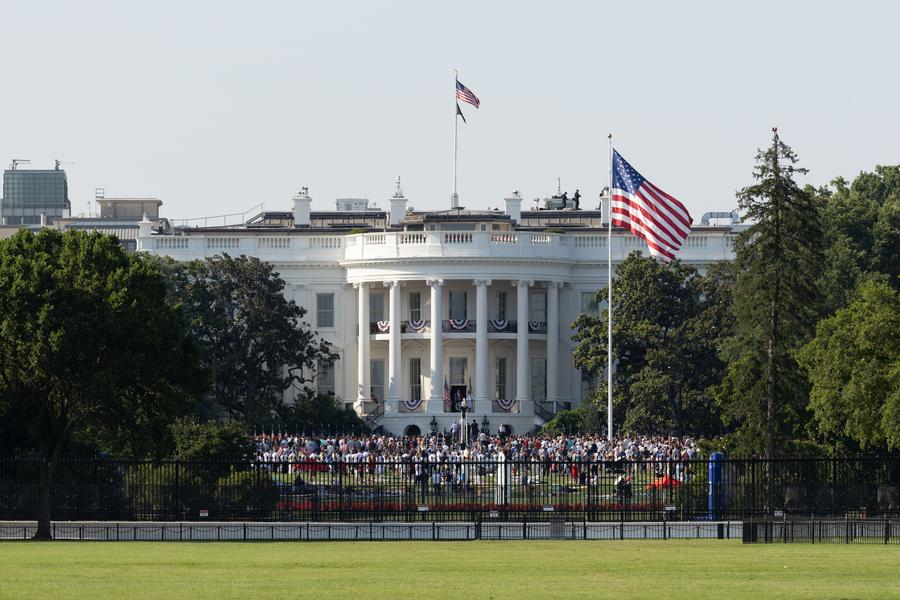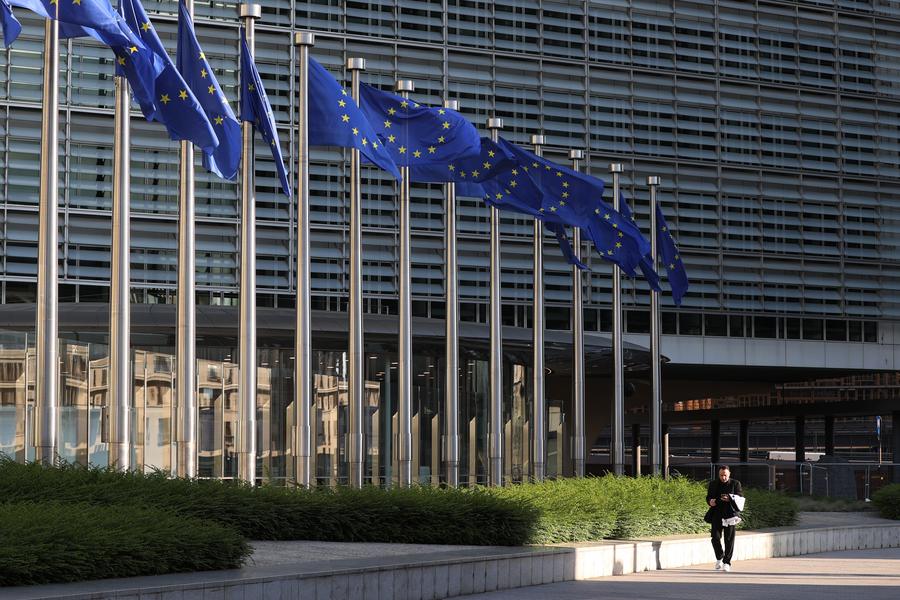BoE warns of global economic risks amid U.S. tariff hikes

Members of the Household Division march during the Trooping the Colour parade to honour Britain's King Charles III on his official birthday in London, Britain, on June 14, 2025. (Photo by Ray Tang/Xinhua)
In Britain, sectors such as manufacturing, which are heavily reliant on U.S. demand, are especially exposed.
LONDON, July 9 (Xinhua) -- The Bank of England (BoE) warned Wednesday that the global economy faces rising downside risks, citing escalating U.S. tariffs.
In its latest Financial Stability Report, Britain's central bank highlighted that tariff hikes, particularly by the U.S., are dampening global demand and weighing on business investment decisions.
Disruptions to global supply chains and geopolitical tensions are also exacerbating uncertainty around inflation, it added.
"Financial markets experienced a period of significant turbulence in April following announcements by the U.S. on trade policy," said BoE Deputy Governor for Financial Stability Sarah Breeden, adding that risks and uncertainties associated with geopolitical tensions, reduced co-operation on trade and international policy, and government finances globally are still elevated.

U.S. President Donald Trump speaks on the balcony of the White House in Washington, D.C., the United States, on July 4, 2025. (Xinhua/Hu Yousong)
Amid the tariff threat, the report noted the vulnerabilities of global household and corporate debt vulnerabilities. "Globally, household and corporate balance sheets remain healthy in aggregate but face headwinds in the context of an uncertain economic outlook," it said.
Over the past six months, one of the big economic problems and chaos has been Washington's trade policy, said Steve Nolan, a senior lecturer in economics at Liverpool John Moores University.
He added that the uncertainty of the trade policy "has had massive effects" on the markets and the bonds.
Nolan's remarks echoed with the report, which warns that trade policy changes create particular difficulties for corporate sectors in impacted regions, resulting in reduced profits and increased manufacturing expenses.

Photo taken on May 23, 2025 shows European Union flags at the European Commission headquarters in Brussels, Belgium. (Xinhua/Zhao Dingzhe)
In the euro area, the report cautioned that the steel and automotive industries in the area are "particularly export-oriented and therefore tariff-sensitive," and the automotive industry receives a large share of bank lending.
According to the European Central Bank's Financial Stability Review in May, trade frictions could significantly affect the resilience of euro area firms in key export-oriented industries. Intensifying trade frictions could worsen the outlook of firms, especially in the manufacturing sector.
In terms of global public sector debt vulnerabilities, the report also highlighted that public debt-to-GDP ratios are rising globally.
In Britain, sectors such as manufacturing, which are heavily reliant on U.S. demand, are especially exposed, with analysts warning that falling global consumption and rising production costs could affect British companies' profitability.
Noting that a new trade agreement between Britain and the United States in May has brought some relief, the report cautioned that a further escalation in trade disputes globally could amplify financial stress and drag on economic growth.
Photos
 From sightseeing to adventure: S China's Guilin grows into world-class tourist city amid outdoor tourism boom
From sightseeing to adventure: S China's Guilin grows into world-class tourist city amid outdoor tourism boom Once impoverished village in S China's Hainan thrives through tea and tourism
Once impoverished village in S China's Hainan thrives through tea and tourism View of Tengwang Pavilion scenic area in Nanchang, China's Jiangxi
View of Tengwang Pavilion scenic area in Nanchang, China's Jiangxi Ancient town of Jianchuan in SW China's Yunnan
Ancient town of Jianchuan in SW China's Yunnan
Related Stories
Copyright © 2025 People's Daily Online. All Rights Reserved.





